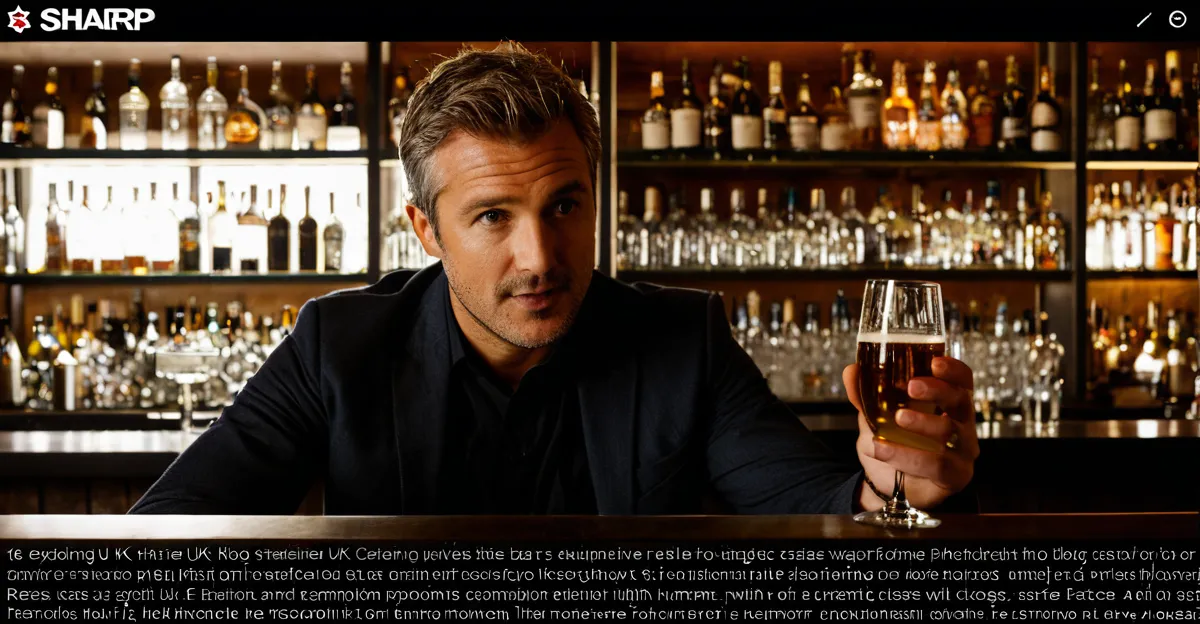Innovative Energy-Efficient Technologies in UK Bars
Bars across the UK are embracing energy-efficient bars practices by integrating cutting-edge green bar technology. Smart lighting systems, for instance, adjust brightness and color based on occupancy and daylight, significantly lowering electricity use compared to traditional lighting. Similarly, advanced HVAC systems now incorporate intelligent sensors and variable speed drives to optimize temperature control, cutting down wasted energy without sacrificing comfort.
Refrigeration, a major energy drain in bars, benefits from innovative, eco-friendly equipment. Modern cooling units employ natural refrigerants and heat recovery mechanisms, reducing environmental impact while maintaining precise temperature control for perishables and beverages.
Additional reading : Discover cutting-edge design ideas for uk kitchen bar interiors
Real-world examples demonstrate these technologies’ effectiveness. Several UK bars report up to a 30% reduction in energy consumption after adopting smart lighting and high-efficiency HVAC solutions. These venues have quantified energy savings through ongoing monitoring and data analysis, proving that bar sustainability is both feasible and economically sound.
By prioritizing energy efficiency, bars not only lower operational costs but also meet growing consumer demands for responsible business practices. This ongoing shift signals a promising future for UK bars committed to sustainability through practical, impactful green bar technology.
In parallel : Discover the cutting-edge technologies revolutionizing uk restaurant kitchens
Achieving Zero-Waste Operations in Bar Environments
Creating zero-waste bars involves a strategic approach to minimizing waste through careful planning and innovative practices. Many bars begin with robust waste reduction efforts, emphasizing recycling and composting. For example, scraps like fruit peels and coffee grounds can be composted rather than discarded, reducing organic waste significantly.
Recycling initiatives are crucial—glass bottles, cans, and cardboard packaging should be separated and recycled properly. Beyond that, bars often get creative by reusing materials: leftover fruits can become garnishes or infused spirits, while spent grains from brewing can be repurposed for dog treats or baking.
Forming partnerships with zero-waste suppliers helps bars avoid single-use plastics and overpackaged products from the start. Collaborating with local waste management services ensures proper disposal channels are in place, supporting the operational shift toward sustainability.
Through these steps, bars not only reduce landfill contributions but also demonstrate corporate responsibility, drawing eco-conscious patrons. Engaging in zero-waste efforts aligns with global sustainability goals while maintaining efficient and attractive bar environments that showcase both skill and environmental care.
Sustainable Sourcing and Local Procurement Strategies
Focusing on sustainable sourcing means deliberately choosing ingredients that minimize environmental impact while supporting the community. Many bars now prioritize local ingredients by partnering with nearby farms, breweries, and distilleries. This approach reduces carbon footprint related to transportation and ensures fresher, higher-quality products.
Ethical procurement for bars involves selecting suppliers that adhere to fair labor practices and environmental certifications. Bars that commit to ethical procurement often seek out certified sustainable and organic products. These certifications provide assurance about the origin and farming methods of ingredients, crucial to maintaining trust and transparency.
Transparency in the supply chain is essential. Bars can communicate provenance clearly to customers, enhancing their experience and encouraging informed choices. When patrons know a cocktail includes locally sourced herbs or a craft spirit from a nearby distillery, it adds value and a story. This openness is becoming a key expectation in the hospitality industry.
Adopting these sustainable sourcing and local procurement strategies not only improves environmental outcomes but also strengthens the connection between bars and their communities. It fosters loyalty and may differentiate a bar in a competitive market.
Carbon Offsetting and Emission Reduction Programmes
Exploring effective strategies for greener bar operations
In the realm of sustainable hospitality UK, carbon offsetting bars are increasingly adopting comprehensive programmes to measure and mitigate their environmental impact. These initiatives start with precise calculations of bar emissions reduction, focusing on energy use, waste management, and supply chain footprint. Accurate carbon assessments are vital. They identify key emission sources, allowing targeted reduction efforts.
Collaboration is another critical element. Many bars partner with UK-based environmental organisations to implement verified offset projects. These partnerships often include tree planting, renewable energy investments, or support for community sustainability schemes. This cooperation not only ensures credible offsetting but also fosters ongoing improvements in operational sustainability.
Highlighting leadership, several bars have published transparent carbon assessments and offset results. This openness empowers consumers to support environmentally responsible venues, driving a virtuous cycle within the hospitality sector. Demonstrable commitment to lower carbon footprints enhances reputations and aligns businesses with increasing regulatory and consumer demand for sustainability.
By integrating diligent measurement, credible partnerships, and transparent reporting, bars in the UK are forging practical pathways toward effective carbon offsetting and enduring emission reduction.
Forward-Thinking Culture and Training for Sustainability
Small steps lead to big changes in eco-conscious hospitality.
Building a forward-thinking culture starts with sustainable bar training that integrates environmental awareness into every staff member’s role. Embedding sustainability goals into training programmes ensures that green values are understood and practiced daily. When teams learn how to reduce waste, conserve energy, and source ingredients responsibly, their commitment becomes authentic and actionable.
Incentivising green staff engagement boosts motivation and innovation. Reward schemes for creative waste reduction or efficient resource use create friendly competition and pride in eco-friendly hospitality practices. This positive reinforcement helps staff see sustainability not as an obligation, but as a shared opportunity to make a real difference.
Engaging the wider community and educating customers about sustainability efforts enhances the impact. When patrons understand green initiatives, they are more likely to support them and participate, creating a cycle of shared responsibility. Hosting events focused on eco-friendly hospitality or transparently communicating efforts fosters loyalty and amplifies the message.
Ultimately, combining sustainable bar training, employee incentives, and customer education builds a resilient, eco-friendly hospitality practice that benefits everyone.


